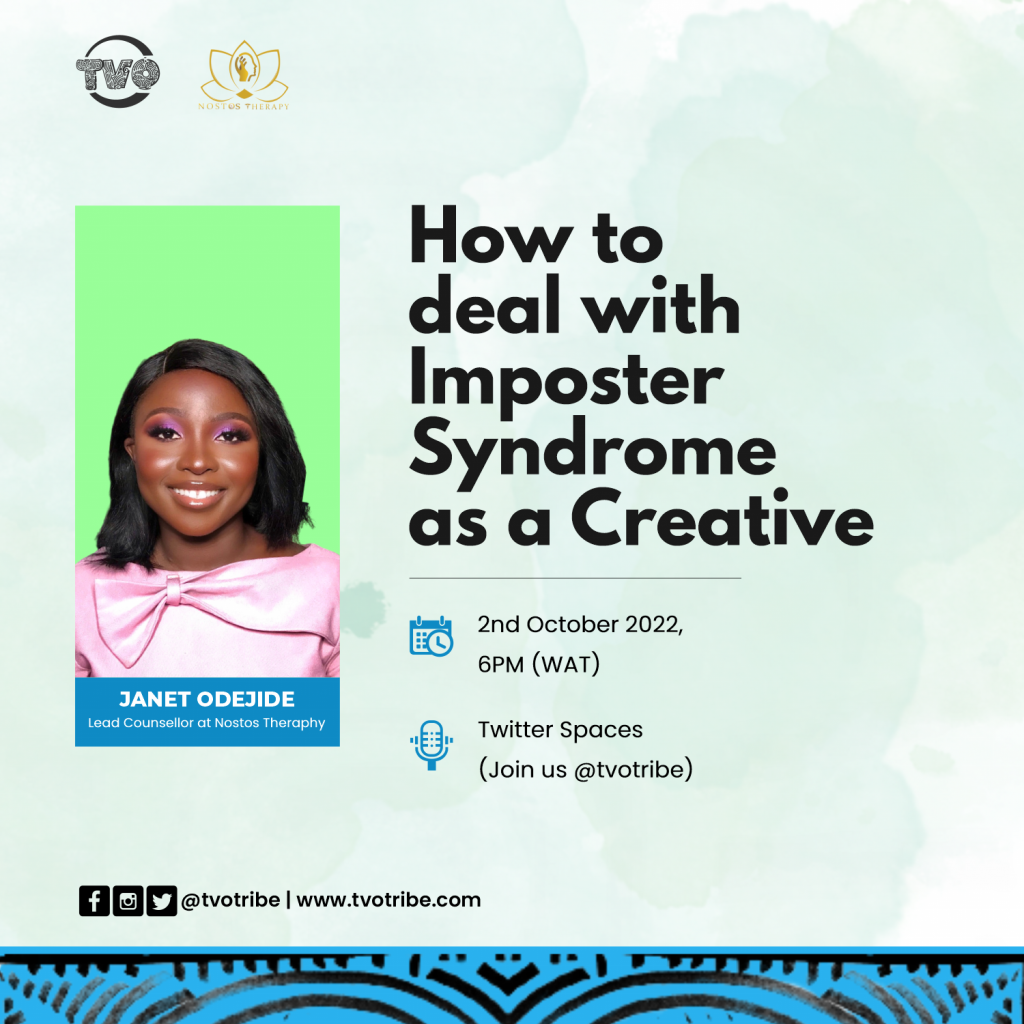Impostor syndrome can be defined as feeling like a fraud and being unable to believe that the external acknowledgements of your work are a true reflection of your person. In creatives, imposter syndrome can be worse, as there is often a need to judge your work by an unseen future metric or past iconic work. Creatives struggling with imposter syndrome, also known as perceived fraud often would have one or more of these underlying reasons why they believe that they are not worth the hype. The reasons include but are not limited to:
- Unhealthy Self-Concept: a creative with a negative self-concept would view themselves through a negatively distorted lens. There could be issues with self-esteem, self-worth, self-compassion and criticism. In fact, in creatives like this, their inner critic voice is often loud, insistent and unforgiving. Having a mental fact-check of this inner critical voice and speaking to yourself kindly, could help in reforming some of the unhealthy self-concepts.
- People-pleasing behaviours: because an unhealthy self-concept exists for individuals, they often resort to people-pleasing behaviours such as fawning( a trauma response), taking additional tasks or being unable to say no when work demands become excruciating. You would have to learn how to say ‘no’ to the little things so that you can build your non-people-pleasing muscles. As with any form of exercise. It is initially bothersome, but eventually, it becomes a lifestyle practice.
- An externally comparing mindset: in many Nigerian households and schools and by extension African communities, comparison of children amongst their siblings and peers, especially in relation to academic, oratory and even recreational activities from early ages can take a mental toll later on in life, where these young adults tend to view their creative expression(s) against other peoples achievements and even pit themselves against them with no recourse to their own journeys. Remaining grateful and gracious in times of external recognition and criticism is one of the ways to remind yourself of your inherent self-worth when you are unsure.
- Stress environments: from irate and unsatisfied clients who are unable to clearly articulate their wants, brain-blocks at inopportune times, and a workload that feels like an ever-revolving door, it is without a doubt that many industries and circles where creatives are needed are high-strung, fast-paced and stressful. You can however determine how much work you can/will take on as setting boundaries would help to reduce stress and anxiety levels as well as restful sleep. Many organisations are adapting models that are employee-centric and friendly to reduce stress and improve productivity, you can begin to research these companies so that you can serve your boss the ultimate breakfast.
- Control and Perfectionism: persons who suffer from imposter syndrome often want to influence how things happen. However, life does not always work our way, if at all it does. Life can be a steep learning curve, and at other times we are thrown completely out of our elements. Remembering that you are not the controller of the Universe and that you are a part of infinite possibilities He is making would assist you in letting go of the need to control the uncontrollable.
6. Self-sabotage and Procrastination: the feelings of not being enough sometimes lead creatives to engage in behaviour that confirms the fraud perception bias. Including submitting well-written articles like this one very late, so that they would not be published, or so that people would not depend on you anymore are some of the ways in which self-sabotage can occur. Reminding yourself that you are worth the hype is going to allow you to stop tripping your own switch.
All of us are different, and this is evidenced in how our DNA and fingerprints are distinct. Allow yourself to revel in the excellent and great that you can create without doubting your genius.
Do you have questions on managing Imposter Syndrome? Leave your questions as a comment and we’ll have Janet share her response with you.


